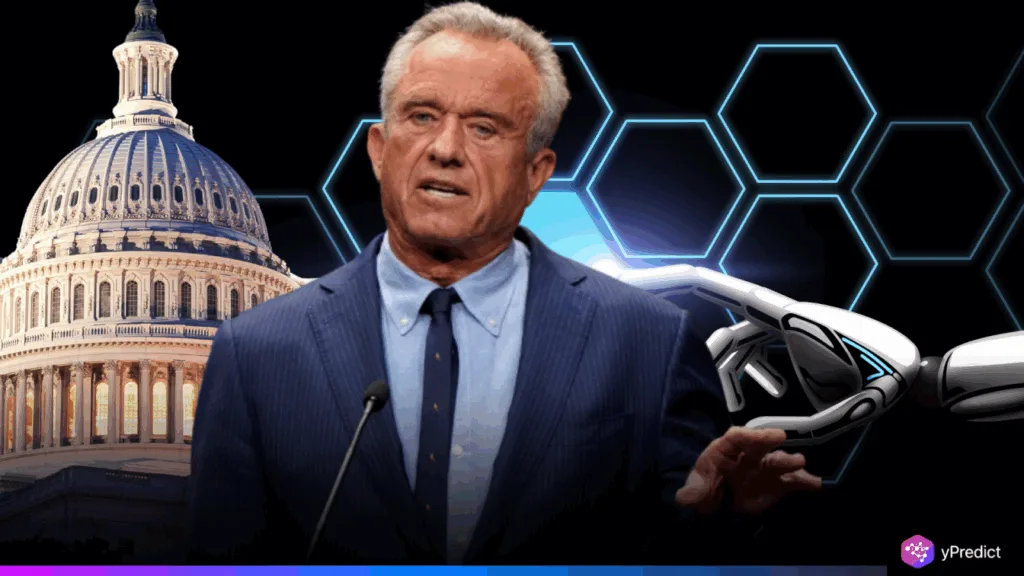
Robert F. Kennedy Jr. has cautioned that AI might drive government surveillance to new heights. He claims instead that AI’s capacity to quickly process enormous amounts of data could supercharge existing monitoring systems, ushering in a society in which citizens retain no meaningful privacy. His comments center on governments potentially deploying AI not just for security but also for population control. Paired with emerging technologies like satellite constellations and data-harvesting smart devices, this can also lead to a surveillance apparatus so potent that democratic protections find it hard to keep up — threatening to tip governance globally toward authoritarian variants.
Satellite networks may soon get rid of privacy globally
Kennedy points to one egregious case in reports of Bill Gates supporting a scheme to launch over 60,000 low-orbit satellites capable of 24/7 monitoring of the Earth. These satellites would offer immediate, HD imaging of nearly every inch of the earth. On the face of it, we might use such infrastructure for innocuous commercial and environmental purposes, tracking deforestation, climate change, or improving communications. But the more ominous subtext is surveillance that can render human activity at granular levels.
Kennedy cautions that in nefarious hands, this sort of technology could fuel ‘totalitarianism at the flip of a switch. Unlike past authoritarian regimes that had to rely on manpower-intensive policing and limited tools to maintain control, a satellite-powered AI system could watch and track every move in an instant. Privacy—which at one time was a fundamental right—would disappear, supplanted by always-on surveillance.
This is a classic tale of the risks of dual-use technologies — where innovation aimed at increasing efficiency or safety can be used instead for domination. It prompts pressing moral and policy issues — who even owns such massive platforms, and what protections are in place against exploitation. Kennedy warns that without rigorous oversight and disclosure, we could slide into a surveillance age so extreme that it surpasses even dystopian fiction.
Turnkey Totalitarianism and the Precariousness of Liberty
At the heart of Kennedy’s cautionary statement is what he calls “turnkey totalitarianism.” This illustrates a state of affairs in which someone has already constructed and set up all the surveillance machinery—just requiring political will to turn it on. Today’s networked technologies produce exactly these conditions. Cameras planted in cities, algorithms profiling online behavior, and biometric instruments are all already tracking everyday existence.
AI amplifies this structure by enabling billions of data points to be analyzed instantaneously. But rather than demand massive bureaucracies to monitor behavior, AI could automate control–spotting dissent, forecasting protests, and even preemptively tagging “risks.” An authoritarian regime wouldn’t have to invent the system; it already stands in fragments across private and public sectors.
Kennedy’s fear is that once “the key is turned,” freedoms can evaporate overnight. Democracies rely on restrictions of government authority, but spy networks paired with AI corrode those restrictions by default. These systems threaten to turn free societies into surveillance states where compliance is no longer voluntary but mandatory. This haunting possibility demands immediate consideration — can we permit the architecture of total control to exist if its abuse could irrevocably sabotage freedom?
Balancing innovation with protections for human rights
Kennedy’s warnings are also an echo of wider discussions in privacy law and technology ethics. Laws like Europe’s GDPR and California’s CCPA try to curb rampant data collection, but technical innovation tends to move faster than legislation. As AI and satellite networks converge, the divide between innovation and accountability deepens. The trick is to make these tools secure and efficient without compromising liberty. Kennedy contends that dismissing the hazards can open the door to irreparable effects. If the foundations of turnkey totalitarianism are in place, the key question is whether societies will build strong protections before it’s too late — or let surveillance dictate the future.






